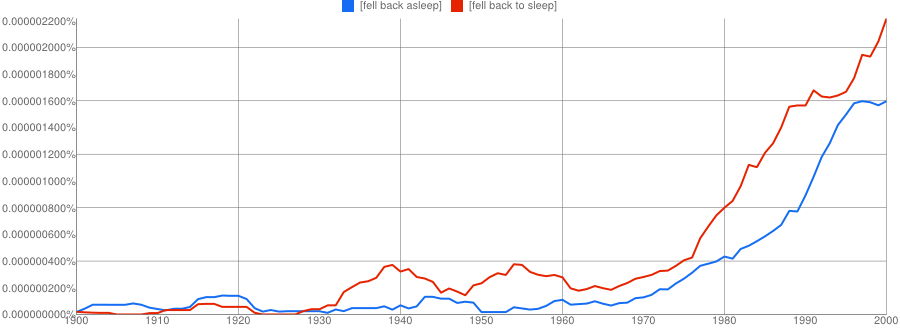A quick Google search shows that the phrase seems to be in relatively common usage, but for some reason I find the construct very awkward.
I would say "fall asleep" the first time, and then "fall back to sleep" if awakened.
Saying "fall back asleep" sounds wrong to me in a similar way to "(I tripped but am) back running". Is something wrong with the tense? A case of "coming back to the present"?

